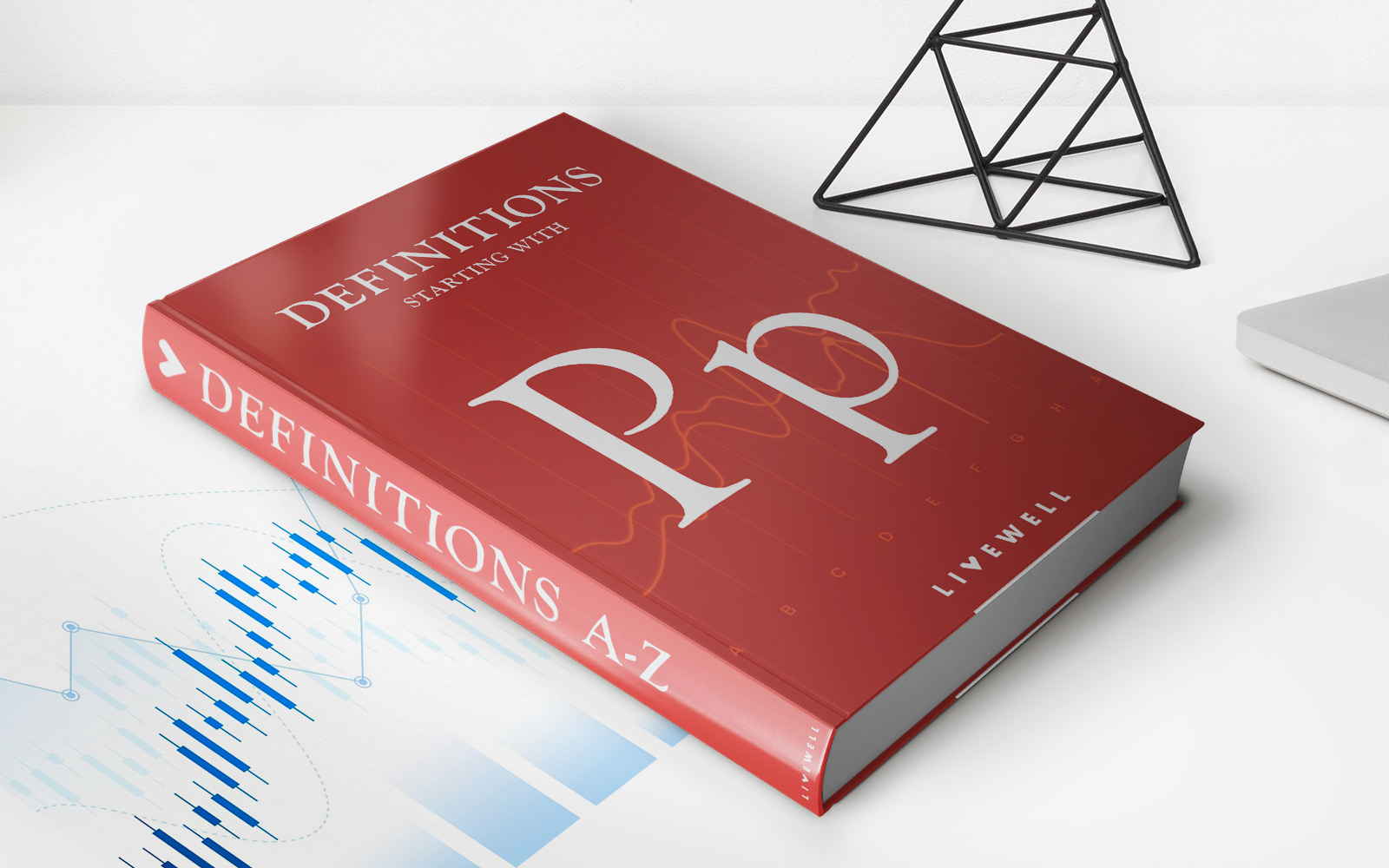

Finance
When Should I Roll Over My 401K
Published: October 17, 2023
Looking to optimize your finance strategy? Find out when it's the right time to roll over your 401K for maximum benefits.
(Many of the links in this article redirect to a specific reviewed product. Your purchase of these products through affiliate links helps to generate commission for LiveWell, at no extra cost. Learn more)
Table of Contents
- Introduction
- Understanding the Basics of a 401(k)
- Reasons to Consider Rolling Over Your 401(k)
- Factors to Consider Before Rolling Over Your 401(k)
- When It May Be Beneficial to Roll Over Your 401(k)
- When It May Not Be Advisable to Roll Over Your 401(k)
- Steps to Take for a Successful 401(k) Rollover
- Common Mistakes to Avoid During a 401(k) Rollover
- Conclusion
Introduction
When it comes to planning for retirement, one of the most important decisions you’ll make is what to do with your 401(k) when you leave your job. A 401(k) is a retirement savings plan offered by employers that allows employees to contribute a portion of their salary on a pre-tax basis. This money grows tax-deferred until withdrawal, giving you the potential to build a substantial nest egg over time.
However, when you switch jobs or retire, you will need to decide whether to leave your 401(k) with your previous employer, roll it over into an Individual Retirement Account (IRA), or transfer it to your new employer’s retirement plan. Making the right choice can significantly impact your financial future and retirement goals.
In this article, we’ll discuss the factors to consider when deciding whether to roll over your 401(k). We’ll explore the advantages and disadvantages of rolling over your retirement funds, as well as the steps to take for a successful rollover process. By the end, you’ll have a better understanding of when it may be beneficial to roll over your 401(k) and when it may not be the best option.
Understanding the Basics of a 401(k)
Before we dive into the details of when to roll over your 401(k), let’s first ensure we have a solid understanding of what a 401(k) is and how it works.
A 401(k) is a retirement savings plan that allows employees to save and invest a portion of their salary on a tax-advantaged basis. The contributions you make to your 401(k) are deducted from your paycheck before taxes, meaning you don’t pay income taxes on that money until you withdraw it during retirement.
Many employers offer 401(k) plans as part of their employee benefits package. In most cases, employers also match a portion of the employee’s contributions, up to a certain percentage of their salary. This employer match is essentially free money and can significantly boost your retirement savings.
Once you’ve enrolled in a 401(k) plan, you have the opportunity to choose from various investment options depending on the plan’s offerings. These options typically include a range of mutual funds, stocks, bonds, and other investment vehicles. The goal is to grow your retirement savings over time by earning a return on your investments.
It’s important to note that there are contribution limits for 401(k) plans set by the Internal Revenue Service (IRS). As of 2021, the maximum amount an employee can contribute to a 401(k) is $19,500 per year, with an additional catch-up contribution of $6,500 for those aged 50 and older.
While a 401(k) offers valuable tax advantages and an opportunity for substantial growth, there are also some limitations and considerations to keep in mind. For example, withdrawing funds from your 401(k) before the age of 59 ½ may result in early withdrawal penalties and taxes. Additionally, there may be restrictions on when and how you can access your funds, depending on your plan’s rules.
Now that we have a grasp on the basics of a 401(k) plan, let’s move on to explore the reasons why you might want to consider rolling over your 401(k) when leaving your job or retiring.
Reasons to Consider Rolling Over Your 401(k)
When you leave your job or retire, you typically have several options for what to do with your 401(k) plan. One of these options is to roll over your 401(k) into an Individual Retirement Account (IRA) or another employer-sponsored retirement plan. Here are some reasons why rolling over your 401(k) may be advantageous:
- Consolidate Your Retirement Accounts: If you have multiple 401(k) accounts from previous employers, rolling them over into a single IRA can simplify your financial life. It’s easier to track your investments and manage your retirement funds when they are consolidated in one place.
- More Investment Options: While most 401(k) plans offer a variety of investment options, rollover IRAs typically provide a broader range of investment choices. This gives you the opportunity to diversify your portfolio and potentially achieve better returns.
- Flexibility and Control: Rolling over your 401(k) into an IRA gives you more control over your investment decisions. You can choose from a wider range of investment vehicles, including stocks, bonds, mutual funds, and exchange-traded funds (ETFs). This flexibility allows you to tailor your investment strategy to your specific goals and risk tolerance.
- Lower Costs: Some 401(k) plans charge administrative and management fees that can eat into your investment returns. By rolling over your 401(k) into an IRA, you may have access to lower-cost investment options and potentially save on fees over the long term.
- Retirement Planning Simplification: Rolling over your 401(k) can make it easier to plan for retirement. You’ll have a unified retirement account that you can track and manage more effectively. This can help you develop a comprehensive retirement strategy and ensure you’re on track to meet your financial goals.
While these reasons may make rolling over your 401(k) seem like a no-brainer, it’s essential to consider the factors and circumstances that could make rolling over your 401(k) less advantageous. We’ll explore those considerations in the next section.
Factors to Consider Before Rolling Over Your 401(k)
While rolling over your 401(k) into an IRA or another retirement account can offer several benefits, it’s important to carefully consider the following factors before making a decision:
- Employer Contributions: If you have an employer match in your current 401(k) plan, you may lose out on that free money if you roll over your funds. Some employers have a vesting schedule, where you gradually gain ownership of the employer’s contributions over a certain number of years. Be sure to understand the impact of rolling over your 401(k) on any employer contributions.
- Investment Options and Fees: Evaluate the investment options and fees associated with your current 401(k) plan and potential rollover options. Compare the investment options, expense ratios, and management fees of your 401(k) with those of an IRA. Determine if the potential benefits of an IRA, such as a wider range of investment choices or lower fees, outweigh the advantages of your current plan.
- Tax Consequences: Consider the tax implications of rolling over your 401(k). If you choose a direct rollover from your 401(k) to a traditional IRA, the funds will remain tax-deferred until you start withdrawing them in retirement. However, if you opt for a Roth IRA rollover, you will owe taxes on the converted amount in the year of the rollover. Consult with a tax professional to determine the best option for your unique situation.
- Access to Funds: If you anticipate needing access to your retirement funds before the age of 59 ½, a 401(k) may offer more flexibility than an IRA. Some 401(k) plans allow penalty-free withdrawals at age 55 if you leave your employer, while early withdrawals from an IRA may incur a 10% penalty in addition to taxes. Consider your short-term and long-term financial needs before deciding to roll over your 401(k).
- Legal Protection: Employer-sponsored 401(k) plans offer certain protections from creditors. Depending on your circumstances, rolling over your 401(k) into an IRA may result in loss of these legal protections. If asset protection is a significant concern, consult with a financial advisor or attorney to weigh the potential risks.
Understanding these factors is crucial in making an informed decision about whether to roll over your 401(k). It’s a personal choice that depends on your individual financial goals, investment preferences, and circumstances. Consider seeking professional advice from a financial planner to help you assess your options and make the best decision for your retirement savings.
When It May Be Beneficial to Roll Over Your 401(k)
While there are several factors to consider when deciding whether to roll over your 401(k), there are specific situations where rolling over your retirement funds may be particularly advantageous:
- Leaving Your Job: If you’re changing jobs or retiring, rolling over your 401(k) into an IRA can provide you with greater control, flexibility, and investment options. It allows you to consolidate your retirement savings and simplify your financial planning in one account.
- Access to Better Investment Options: If your current 401(k) plan has limited investment choices or high fees, moving your funds to an IRA can provide you with a wider selection of investments and potentially lower costs. You can tailor your investment portfolio based on your risk tolerance and long-term financial goals.
- Lower Fees: Assess the administrative and management fees associated with your 401(k) plan. If your plan charges high fees that impact your investment returns, rolling over to an IRA with lower-cost investment options can help you save on fees and potentially increase your retirement savings over time.
- Investment Control: Rolling over your 401(k) into an IRA gives you more control over your investments. You can actively manage your portfolio, make adjustments based on market conditions, and take advantage of investment strategies that align with your financial goals.
- Consolidating Retirement Accounts: If you have multiple 401(k) accounts from previous employers, rolling them into an IRA can simplify your financial life. It streamlines your retirement planning and allows you to monitor your investments more efficiently.
Keep in mind that everyone’s financial situation is unique, and what works for one person may not work for another. It’s essential to evaluate your specific circumstances, such as your retirement goals, investment preferences, and tax considerations, when deciding whether to roll over your 401(k).
A financial advisor can provide personalized guidance based on your individual needs and objectives. They can help you navigate the rollover process, assess the potential advantages and disadvantages, and determine the most suitable retirement savings strategy for your long-term financial success.
When It May Not Be Advisable to Roll Over Your 401(k)
While rolling over your 401(k) can offer numerous benefits, there are certain situations where it may not be advisable to move your retirement funds:
- Access to Employer-Specific Investment Options: Some employer-sponsored 401(k) plans offer unique investment options, such as company stock or specialized funds. If these investments align with your financial goals and provide substantial advantages, it may be worth considering leaving your funds in the 401(k) rather than rolling them over.
- Early Retirement: If you plan to retire before age 55, leaving your funds in a 401(k) can provide you with penalty-free access to your retirement savings. With an IRA, early withdrawals generally incur a 10% penalty on top of any applicable taxes, so it’s crucial to assess your early retirement plans and potential financial needs before making a decision.
- Legal Protection: Employer-sponsored 401(k) plans offer certain legal protections from creditors. In some cases, this protection may exceed what is offered by an IRA. If asset protection is a significant concern, it’s essential to consult with a financial advisor or attorney to understand the potential impact of rolling over your 401(k) on creditor protection.
- Loan Options: Some 401(k) plans allow participants to take out loans against their retirement funds. If you anticipate needing a loan in the future, rolling over your 401(k) would eliminate this option. It’s important to weigh the potential benefits of loan availability against the long-term impact on your retirement savings.
- Unique Tax Considerations: If you have a significant amount of after-tax contributions in your 401(k) and your plan permits it, you may be eligible for a beneficial tax treatment known as the “Net Unrealized Appreciation” (NUA). This allows you to take advantage of potential tax savings on the appreciation of company stock held in your 401(k). Rolling over your 401(k) before exploring the NUA can result in missed tax benefits.
It’s important to carefully evaluate these factors and consider the potential consequences before deciding against rolling over your 401(k). Your decision should align with your specific financial goals, investment preferences, and retirement plans.
If you’re uncertain about whether rolling over your 401(k) is the right choice for you, seeking advice from a financial planner or retirement specialist can provide valuable insights tailored to your individual circumstances.
Steps to Take for a Successful 401(k) Rollover
If you decide that rolling over your 401(k) is the best option for your retirement savings, here are the steps you can take to ensure a smooth and successful rollover:
- Evaluate Your Options: Research and compare the different types of retirement accounts, such as Traditional IRAs, Roth IRAs, or your new employer’s retirement plan. Consider factors such as investment options, fees, tax implications, and withdrawal rules to determine which option best aligns with your financial goals.
- Contact the New Provider: If you choose to open a new retirement account, contact the financial institution or brokerage firm where you want to establish the account. They can guide you through the process, provide any necessary forms or paperwork, and assist you with the transfer of your 401(k) funds.
- Consult a Financial Advisor: Seek advice from a financial advisor who specializes in retirement planning. They can evaluate your individual circumstances, help you determine the most suitable rollover option, and provide guidance on tax implications and investment strategies.
- Initiate the Rollover: Complete the necessary paperwork to initiate the rollover process. This typically involves filling out a rollover request form provided by your new retirement account provider. Be sure to follow the instructions carefully and provide accurate information to avoid any potential delays or errors.
- Choose the Rollover Type: Decide between a direct rollover or an indirect rollover. With a direct rollover, the funds are transferred directly from your 401(k) into your new retirement account without you touching the money. An indirect rollover involves receiving the funds from your 401(k) and depositing them into your new retirement account within 60 days to avoid tax consequences.
- Monitor the Rollover Process: Stay in touch with both your old and new retirement account providers to ensure a seamless transfer. Keep track of any paperwork or forms that need to be completed, and verify that your funds have been successfully moved to your new account.
- Review and Adjust Investments: Once the rollover is complete, review your investment options in your new retirement account. Assess your risk tolerance and financial goals to adjust your investment allocations accordingly. Consider diversifying your portfolio to manage risk and maximize potential returns.
- Regularly Monitor Your Retirement Account: It’s crucial to regularly review and manage your retirement account. Stay informed about market trends, assess your investment performance, and make adjustments as needed. Regularly contribute to your new retirement account to continue building your savings over time.
Remember, it’s essential to understand the specific rollover requirements of your 401(k) plan and follow the guidelines outlined by your retirement account provider. Consulting with professionals and staying proactive throughout the rollover process can help ensure a successful transition and keep you on track towards achieving your retirement goals.
Common Mistakes to Avoid During a 401(k) Rollover
While a 401(k) rollover can be a beneficial move for your retirement savings, there are some common mistakes to avoid to ensure a smooth transition and minimize potential setbacks:
- Not Understanding the Rollover Rules: It’s crucial to familiarize yourself with the rules and regulations surrounding 401(k) rollovers. Each retirement account, whether it’s an IRA or a new employer’s plan, may have its own requirements and restrictions. Failure to adhere to these rules can result in unexpected taxes, penalties, or other complications.
- Choosing an Inappropriate Rollover Option: Selecting the wrong type of rollover can lead to unfavorable tax consequences. Be sure to understand the difference between a direct rollover, where the funds are transferred directly from your 401(k) to the new account, and an indirect rollover, where you receive a distribution and must deposit it into the new account within 60 days. If not completed within the specified timeframe, an indirect rollover may trigger taxes and penalties.
- Neglecting to Update Beneficiary Designations: When you roll over your 401(k), it’s essential to review and update your beneficiary designations. Failing to do so could result in your assets being distributed according to outdated instructions, potentially causing complications for your loved ones in the future.
- Forgetting about Outstanding Loans: If you have an outstanding loan from your 401(k), it’s crucial to understand the implications of the loan during a rollover. Depending on the specific terms of your loan agreement, failing to address the loan properly during the rollover process can lead to the loan becoming taxable, incurring taxes and penalties.
- Not Seeking Professional Advice: Rollovers can be complex, and the financial implications can vary based on your individual circumstances. It’s advisable to consult with a financial advisor or tax professional who specializes in retirement planning. They can provide guidance tailored to your situation and help you make informed decisions.
- Missing Rollover Deadlines: If you opt for an indirect rollover, it’s crucial to deposit the funds into the new retirement account within the specified timeframe (usually 60 days). Failing to meet this deadline can result in taxes and penalties on the amount distributed from your 401(k).
- Not Considering Investment Options: Don’t overlook the importance of reviewing and adjusting your investment options after the rollover. Failing to evaluate and allocate your funds appropriately can hinder your ability to achieve your long-term financial goals.
- Overlooking Legal Protections: If asset protection is a concern, be aware of the legal protections offered by your 401(k) plan. Rolling over your funds into an IRA could potentially reduce the level of protection against creditors. Consult with a financial advisor or an attorney to assess the potential impact on your individual situation.
By avoiding these common mistakes and remaining diligent throughout the rollover process, you can maximize the potential benefits of rolling over your 401(k) and ensure a seamless transition to your new retirement account.
Conclusion
Deciding what to do with your 401(k) when leaving a job or retiring is a significant financial decision that can greatly impact your retirement savings. While there are various factors and considerations to take into account, rolling over your 401(k) into an Individual Retirement Account (IRA) or another retirement plan can offer several advantages.
By rolling over your 401(k), you can consolidate your retirement accounts, gain access to a wider range of investment options, potentially lower fees, and have more control over your investments. However, it’s essential to carefully evaluate your specific circumstances and needs before making a decision.
Consider factors such as employer contributions, investment options, fees, tax implications, access to funds, and legal protections. Additionally, consult with professionals such as financial advisors or tax experts to ensure that you make the best decision for your individual financial goals and retirement plans.
Remember to follow the necessary steps for a successful 401(k) rollover, such as evaluating your options, initiating the rollover process, and monitoring the transfer of funds. Avoid common mistakes, such as not understanding the rollover rules, choosing the wrong rollover option, or failing to seek professional advice.
By taking these considerations into account, you can make informed decisions regarding your 401(k) rollover and set yourself up for a solid foundation in your retirement savings journey. The key is to plan ahead, stay proactive, and continually monitor your retirement accounts to ensure they align with your evolving financial goals.
Whether you decide to roll over your 401(k) or explore other options, remember that retirement planning is a long-term process. With careful consideration and informed decision-making, you can pave the way for a financially secure and fulfilling retirement.














